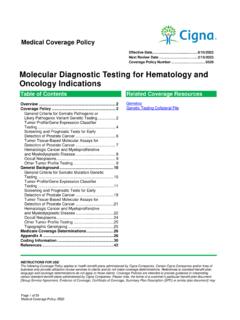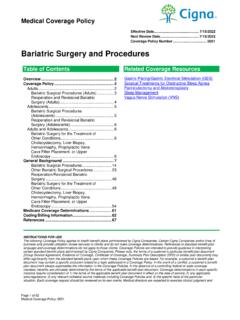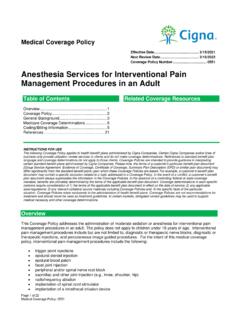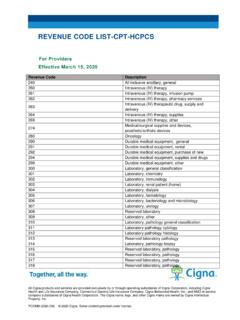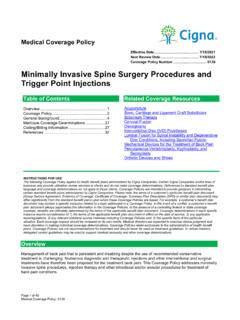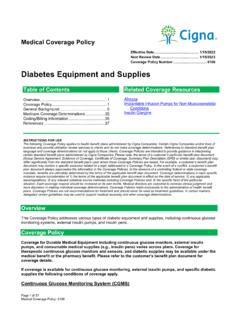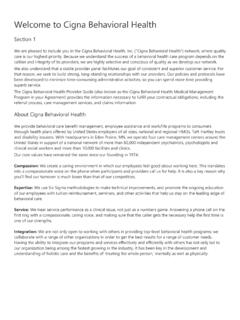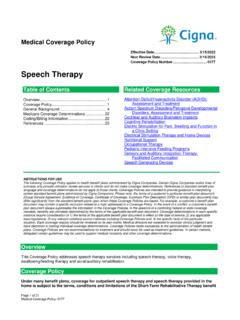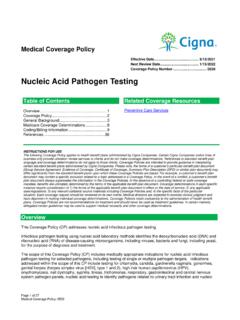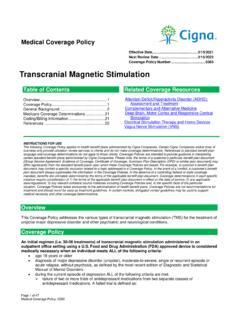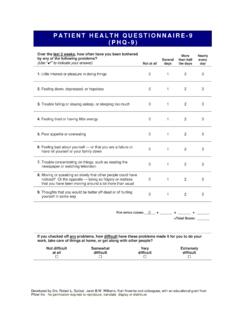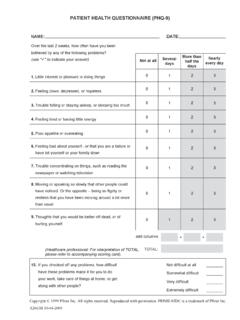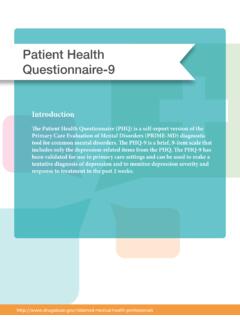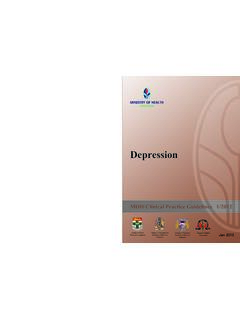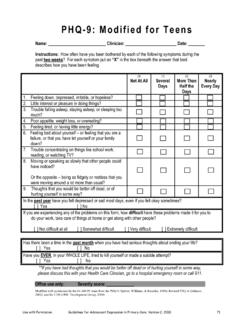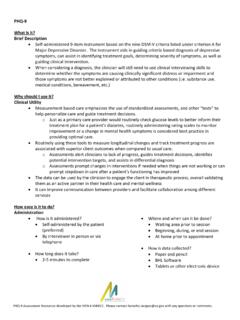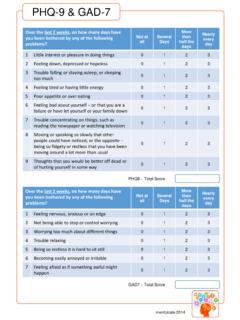Transcription of Personal Health Questionnaire (PHQ-9) Score Interpretation ...
1 Personal Health Questionnaire (PHQ-9) Score Interpretation and Possible Actions Total Score Depression Severity Actions Needed 1-4 Minimal depression Initial Assessment This Score suggests the patient, at this time, may not need depression treatment. You may consider a referral to EAP or Online Coaching and provide education about depression. Quarterly monitoring is suggested if there is a history of previous bouts of depression or strong family history. Ongoing Monitoring Reduction of Score to this level implies remission of depression. Medications need to be continued for at least 6 months with no history of previous bouts of depression and for at least a year for those with previous history of treatment. Provide ongoing education about depression relapse and continuing medication.
2 5-9 Mild depression Few, if any, symptoms in excess of those required to make diagnosis & symptoms result in only minor impairment in occupational functioning or social/relationship functioning. Initial Assessment Use clinical judgment in deciding the appropriate treatment. Quarterly monitoring is suggested if there is no history of previous bouts of depression or strong family history. For patients with previous history of bouts of depression, treatment should be seriously considered. 1) Antidepressants if preferred by patient or if there is a history of previous medication treatment 2) Referral to EAP, Online coaching or to a behavioral Health therapist 3) Provide education about depression Ongoing Monitoring A 5 point reduction in Score or greater indicates a solid response to treatment.
3 Continue to: 1) Provide ongoing education about depression relapse 2) Monitor with repeat PHQ-9 scoring, and 3) Provide education about the need for continuing medication. 10-14 Moderate depression Symptoms in excess of the minimal number required for the diagnosis that often keep the person from doing things they need to do. Initial Assessment With no previous history of depression, a referral to counseling through EAP, CIGNA Behavioral Health or directly to a behavioral Health therapist may be beneficial. For patients with previous history of bouts of depression, treatment should be seriously considered. 1) Antidepressants if preferred by patient or if there is a history of previous medication treatment 2) Referral to EAP, Online coaching or to a behavioral Health therapist 3) Provide education about depression Ongoing Monitoring Reduction of a Score of 5 points or greater indicates a solid response to treatment.
4 Reduction of a Score less than 5 points within 8 weeks indicates no response. Treatment plan change may be considered at this time. Provide ongoing education about depression relapse and continuing medication. 15-19 Moderately severe depression Initial Assessment Treatment for depression using antidepressant, referral for psychotherapy and/or combination of treatment. Provide education about depression. Ongoing Monitoring Indicates poor or no response unless Score has decreased 5 or more points. Lack of response within 8 weeks may require medication change, additional medication or augmentation or referral to a psychiatrist. 20-27 Severe depression Nearly all symptoms of major depressive disorder, and symptoms markedly interfere with daily functioning (with or without psychotic features) Initial Assessment Warrants treatment for depression using antidepressants or a combination of antidepressants and psychotherapy.
5 Physician may wish to contact CIGNA Behavioral Health for consultation or referral. Provide education about depression. Ongoing Monitoring Indicates severe depression that would require psychiatric referral for consultation and/or management. Response to Treatment Recommended Strategies Some improvement at 4-8 weeks Adjust dosage and/or augmentation if on medication If therapy alone is being used, consider adding antidepressant and a psychiatric consultation No improvement at 4-8 weeks Change medication usually to a different class of medication or reassess effectiveness of therapy No or partial response at 8 weeks If only partial or no response to medication/therapy, refer or consult a psychiatrist or other mental Health professional To access depression guidelines, go to , click on Are you a Provider, then Primary Care Physicians and Medical Providers.
6 Click on Printable Depression Practice Guidelines for CIGNA s Primary Care Physician Guidelines for Depression in Adults. Click on Practitioner Toolkit for resources intended to support primary care physicians and other medical providers in assessment and management of patients diagnosed with depression. Resources include information about assessment, medication management and referrals to EAP, Online Coaching, and behavioral heath treatment. For additional information or to talk with a CIGNA psychiatrist, please call the Well Aware Depression Disease Management Program at 1-800-227-8160.
